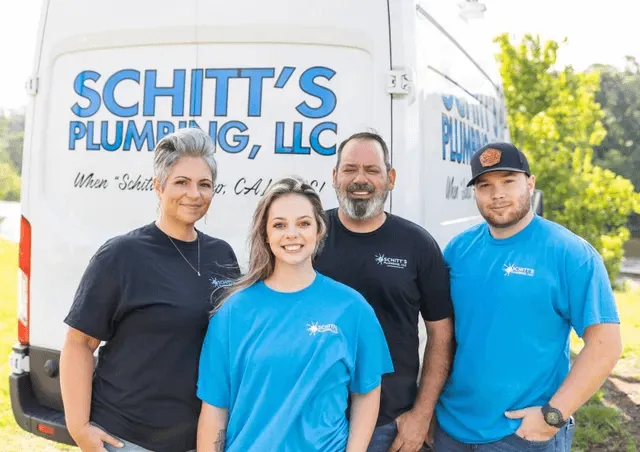Running a small business means addressing countless challenges and wisely outsourcing processes. Among these, marketing is pivotal. Choosing the right agency is crucial for success. This guide navigates the marketing landscape, highlighting the benefits of outsourcing, determining business needs, and exploring specialized in-home services marketing.
Why specialized agencies are essential
A strong digital presence is crucial for success in today’s business world. Digital marketing, which includes SEO, social media, content marketing, and more, has become the foundation for achieving this. To navigate this complex landscape, a specialized marketing agency with a deep understanding of the digital realm can be invaluable.
One of the advantages of working with a marketing agency is having access to a team of experts. Rather than relying on the knowledge of one individual, businesses can benefit from the collective skills and knowledge of a diverse team. Agencies usually have SEO specialists, content creators, and social media strategists who work together to create effective marketing strategies.
Outsourcing marketing tasks or campaigns to a specialized agency can also be more cost-effective for small businesses. Maintaining an entire marketing department in-house with full-time employees can be financially burdensome, considering salaries, benefits, and other overhead costs. Outsourcing to an agency means paying only for the services required, making it a more economical solution.
Crucial steps in hiring a marketing partner
In the intricate realm of plumber marketing, selecting the right partner is pivotal for a business’s success. This involves a systematic approach, encompassing crucial steps that lay the groundwork for productive collaboration.
# Setting SMART Goals
Before embarking on the journey to find a marketing partner, you must establish SMART goals. These goals are Specific, Measurable, Achievable, Relevant, and Time-bound.
- Specific:
Goals should be well-defined and precise, leaving no room for ambiguity. For instance, instead of a vague objective like “increase website traffic,” a specific goal could be “achieve a 20% increase in monthly organic website traffic.
- Measurable:
There should be a quantifiable metric to track progress. In the context of lead generation, a measurable goal might be to generate 100 new leads per month.
- Achievable:
Goals need to be realistic and attainable within the given resources and constraints. Setting unattainable objectives can lead to frustration and inefficiency.
- Relevant:
Goals must align with broader business objectives. For example, if the overarching goal is to enhance brand awareness, specific marketing goals should contribute to this overarching aim.
- Time-bound:
A specific timeframe should be attached to each goal to create a sense of urgency. For instance, “increase social media engagement by 25% in the next three months.”
Defining clear objectives provides a roadmap for the collaboration, ensuring that both the business and the marketing agency are aligned in their vision for success. Whether it’s boosting organic traffic, generating leads, or enhancing conversions, SMART goals serve as a foundation for effective collaboration.
# Building a shortlist: Strategies for identifying potential agencies
With goals in place, the next step involves identifying potential marketing agencies. Several strategies can be employed for building a shortlist.
- Utilizing matchmaking platforms:
Explore platforms that connect businesses with agencies. These platforms may include independent services that list various marketing agencies or brand-centric platforms like Google Partners or Facebook Partner Directory. For instance, businesses using Semrush can explore the Agency Partners platform, a matchmaking service that helps brands find suitable marketing agencies.
- Seeking recommendations:
Leverage the experiences of industry peers or colleagues who may have worked with marketing agencies. Recommendations can provide valuable insights into an agency’s strengths, weaknesses, and overall suitability for specific business needs.
- Certifications and affiliations:
Consider agencies certified by established brands in their network. This could be an indicator of credibility and expertise. For example, if a business is using specific tools or services, exploring agencies endorsed by those service providers can be beneficial.
This curated shortlist sets the stage for a focused evaluation of agencies that align with the business’s specific needs and objectives.
# Crafting the Proposal: Initiating the Request for Proposal (RFP) Process
Once the shortlist is ready, businesses initiate the Request for Proposal (RFP) process. Crafting a formal RFP involves several key steps.
- Project overview:
Provide a detailed overview of the project, outlining its objectives, scope, and expected outcomes. Communicate the business’s vision and expectations from the marketing agency.
- Goals and metrics:
Reiterate the SMART goals established earlier. Clearly outline the key performance indicators (KPIs) that will be used to measure success. This ensures that the agency understands the desired outcomes.
- Budget and timeline:
Specify the budget allocated for the project and the expected timeline for completion. This information helps agencies tailor their proposals to align with the financial constraints and deadlines.
- Evaluation criteria:
Clearly define the criteria that will be used to evaluate the proposals. This may include factors such as expertise in a specific industry, successful case studies, or innovative approaches to marketing challenges.
- Questionnaire:
Include a set of questions that agencies should answer as part of their proposal. These questions can cover various aspects, including the agency’s experience, team composition, and proposed strategies for achieving the outlined goals.
The RFP process serves as a structured way to gather detailed information from potential agencies, aiding in the decision-making process.
# Partnering for Success: Matching with the ideal agency
Now that the proposals have been received, the final step involves evaluating and matching them with the ideal agency.
- Online presence:
Begin by scrutinizing the agency’s online presence. A digital marketing agency should excel in promoting its brand. Evaluate their activity on social media platforms, the quality of their website, and the content they produce. An agency that practices what it preaches in digital marketing is more likely to be a reliable partner.
- Testimonials and case studies:
Examine testimonials and case studies from the agency’s previous clients. Real-world examples of successful campaigns and positive client experiences offer valuable insights into the agency’s capabilities and track record.
- Client references:
Reach out to current or previous clients of the agency for direct feedback. This provides an opportunity to gain an unbiased perspective on the agency’s communication, reliability, and overall performance.
- Alignment of values and communication:
Schedule a meeting with the team that will be working on the project. This allows for an assessment of the chemistry between the business and the agency. Alignment of values, effective communication, and a shared vision contribute to a healthy working relationship.






